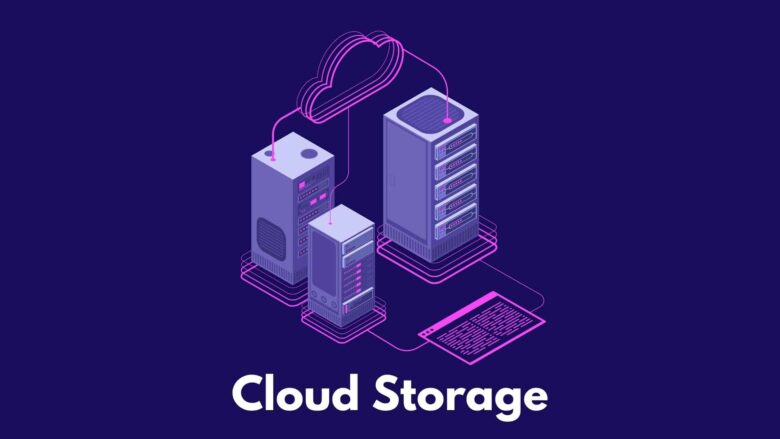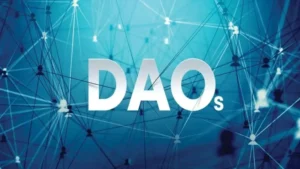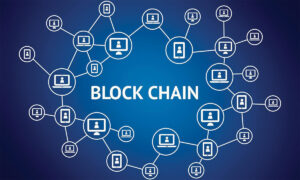In an era where data is money, data storage and security are crucial. Traditional cloud storage services have long offered organizations and consumers a convenient alternative. Centralized systems struggle with data breaches, high prices, vendor lock-in, and limited control over sensitive data. Decentralized data storage is more secure, transparent, and user-friendly. In this evolving architecture, data is distributed across multiple nodes worldwide, eliminating the single point of failure of centralized servers. It offers added privacy, resilience, and independence for both small consumers and large enterprises. As the need for control and privacy continues to grow, decentralized data storage is becoming the future of private cloud solutions.
Understanding Decentralized Data Storage
Instead of storing files on a cluster of servers, decentralized data storage splits and distributes files across a global computer network. This design has many advantages. Your data belongs to no one, so you retain ownership and privacy. To reconstruct encrypted and decentralized data, only you have the key. This significantly reduces data loss and unauthorized access. Imagine your data is in a vault, with every part of the key distributed across the globe. Only you can merge them. The advantages of this system are: Decentralized networks use open-source code and community-driven protocols, unlike typical cloud providers, which can scan or sell user data. Transparency fosters trust and ensures that data is secure, private, and under user control.
Why Decentralization Improves Security
Centralized cloud infrastructure can be a target for cybercriminals. A single vulnerability in a server can expose millions of records. Decentralized storage, on the other hand, has a resilient, security-focused architecture. Even if files are cracked and encrypted, they are useless if hackers only obtain a portion of them. Blockchain technology verifies and records all interactions across numerous decentralized storage platforms. This makes unauthorized changes visible and provides an immutable audit trail. Eliminating a single service provider improves security. If one node goes offline, other nodes in the decentralized network protect your data. This can increase uptime and protect data from natural disasters, server failures, and malicious attacks. With the rise of ransomware and data breaches, this decentralized technology is becoming increasingly secure and reliable.
Decentralized Cloud is Cost-effective and Flexible
Decentralized data storage is both cost-effective and private and secure. Traditional cloud services charge for storage, bandwidth, and functionality, tying users to expensive subscriptions. Decentralized systems, on the other hand, operate on the basis of a sharing economy. A fixed, decentralized cloud network is built by renting out unused hard drive space worldwide. This peer-to-peer strategy lowers prices and increases flexibility. You only pay for what you use, without hidden fees or expensive subscriptions. Furthermore, the infrastructure overhead of setting up servers is eliminated. From a business perspective, it allows startups and enterprises to expand their data needs without large investments. Many decentralized systems are compatible with cloud services, allowing a hybrid model to gradually transition away from centralized storage. This flexibility allows businesses to test, integrate, and transition to decentralized storage without disrupting their business operations.
Giving Users More Control and Privacy
Lack of user control is the top complaint people have about centralized cloud solutions. Users often encounter service providers that restrict access, block accounts, or prevent data deletion. Decentralized storage turns this concept on its head. Users hold encryption keys and access permissions, allowing you to control how files are viewed, used, and modified. You decide what data can be kept, what can be deleted, and who can view your data. More control improves data governance and accountability. In an era where companies can monetize user data without permission, a decentralized approach is refreshing. These transparent, open-source platforms don’t use ads or tracking to generate revenue. Decentralized cloud solutions are reliable and sustainable and respect data ownership for privacy-conscious individuals.
The Role of Blockchain in Decentralized Storage
Blockchain is essential for decentralized data storage. The digital backbone organizes transactions, verifies data distribution, and ensures accountability without a central authority. The blockchain ledger records every file interaction—storage, retrieval, or modification—creating an immutable record. This increases transparency and trust. Users can control secure data storage and authorized access. Storage agreements between user and provider are automatically executed via smart contracts, another breakthrough in blockchain. These contracts guarantee fair payments and data returns without human intervention. Blockchain tokens reward contributors to network storage. Everyone benefits from this self-sustaining ecosystem, and competition automatically optimizes performance. Blockchain technology makes decentralized storage seamless and efficient, but without blockchain, coordination and reliability would be difficult to achieve.
Conclusion
In a digital world dominated by centralized companies, the growing need for privacy, control, and trust has led to decentralized data storage. With the rise of data breaches, surveillance, and cloud service costs, individuals and organizations are seeking solutions that align with their values. This innovative model makes no compromises on security, cost, and control. It empowers consumers to regain access to their digital assets and offers a future free from the threat of centralization. Peer-to-peer networks and blockchain technology are redefining private cloud storage. As usage increases and more people adopt the cloud, decentralized storage will change how we view it. While the journey has only just begun, a more private, secure, and user-controlled internet is just around the corner.
FAQs
1. Decentralized Data Storage?
Data is stored on multiple network nodes instead of servers, improving security and privacy.
2. Are decentralized storage systems more secure than the cloud?
Data is encrypted and distributed across multiple nodes, making it harder for hackers to access or steal your data.
3. Can businesses use decentralized storage?
Of course they can. Secure backups, customer data protection, and reduced dependency on third parties are encouraging many companies to implement decentralized storage.
4. Does decentralized storage require blockchain expertise?
Most systems are user-friendly and abstract the blockchain layer, so you can use them just like any other cloud provider.
5. Are decentralized storage services expensive?
Because they use a sharing economy approach and only charge per use, they are less expensive than traditional services.




